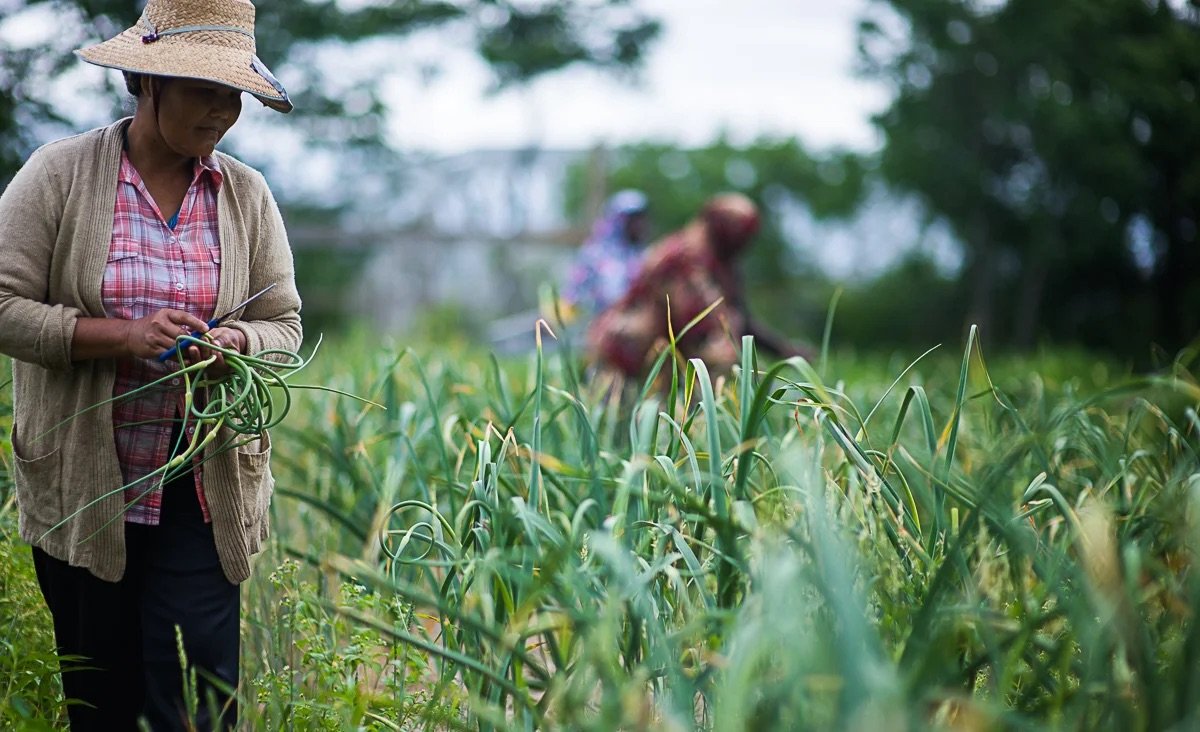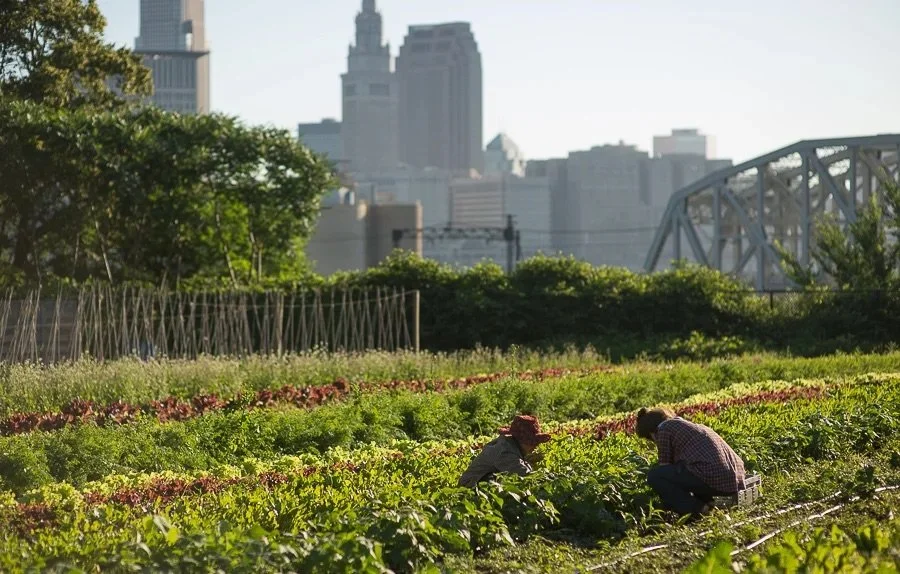Mar 8, 2023
Urban Farms are Planting Roots: Empowering Refugees and Nourishing Communities
Written by: Dorothy Braun
March 8, 2023
The global refugee crisis has doubled in scope over the past decade, resulting from varying situations such as violent conflicts, economic crises, and climate catastrophes. Privileged nations have a responsibility to aid in these urgent crises, yet the impacts of a welcoming response surpasses the federal level, and can be extremely impactful on a community level.

Credit: Ohio City Farm.
One exemplary response has been through urban farms, driven by missions of access, collaboration, and resilience. Community-oriented agriculture across the United States provides fresh, nutritional produce to their local communities while simultaneously promoting cultural diversity and inclusion. As the global refugee crisis continues to displace millions, many of these farms have also focused on working with refugees to create safe and supportive employment environments, build relationships, and provide opportunities to connect with the local food system.
Refugees from Bhutan and Nepal, now members of the vibrant and diverse community of South Philadelphia, have cultivated a 7,000 square foot Refugee Urban Garden, known as “Growing Home.” Their desire to build cultural connections and receive career-oriented agrarian training motivated the community garden, which now welcomes people of all ages and abilities to help weed, soil, plant, and nurture their new home. All of the individual plots are owned and maintained by employed immigrants, fostering independence and allowing the freedom to explore this new experience in varying ways.

Credit: Ben Hider for NYRP.
In the Bronx, New Roots Community Farm offers refugees the opportunity to participate in community engagement, food sovereignty, and collaborative education. The International Rescue Committee partnered with the New York Restoration Project to revitalize the urban farm. Their half-acre plot in the Bronx is only one of over a dozen farms included in the New Roots program, committed to providing access to land, training, and community building in cities. Similar to Growing Home, the farm is responsive to member’s needs and desires, transforming the land to shared garden beds, to nurture a sense of responsibility to others and diversify the crops, optimizing food production to mitigate food insecurity in the community.
The Ohio City Farm was founded in 2010, powered by the Refugee Response and empowering resettled refugees through critical employment and agrarian training, though many refugees working at the farm draw on a range of experience and relevant agricultural backgrounds from their home countries. Many of the crops grown and harvested at the Ohio City Farm serve the greater community such as their farm CSA, local restaurant orders, markets and farm stands, and food donation programs.

Credit: Global Growers.
The same year, refugees from Burundi, Rwanda, Congo, and Tanzania broke ground for their farm Umurima, located in the Atlanta metropolitan area. Motivated to reclaim their traditional agricultural heritage, a small group of families inspired the growth of the Global Growers Network, which now includes almost 175 resettled refugee families.
There are other organizations that facilitate the empowerment of refugees through agriculture, such as Plant It Forward, a non-profit based in Houston. Plant It Forward leverages their networks of land, farmers, and markets to provide targeted opportunities for refugees with professional farming backgrounds to support individual ambition as well as the vitality of small-scale local farms.
The national movement to rejuvenate local food systems and cultivate equitable, diverse, and inclusive economies has had profound positive impacts on urban communities. The unique (agri)cultural vibrancy that results from the merging of traditional practices across international geographies further enriches the health of the land and community.

